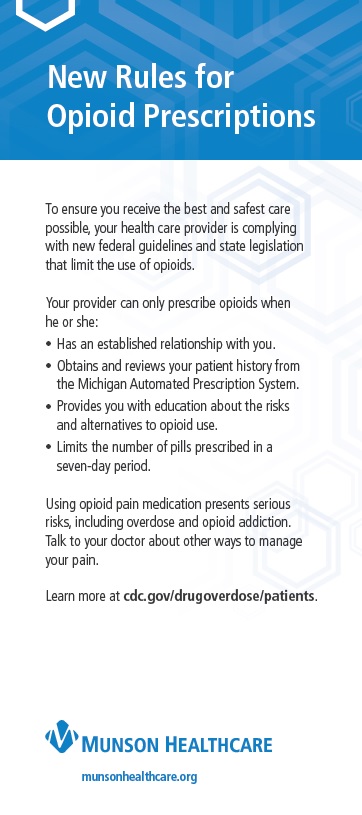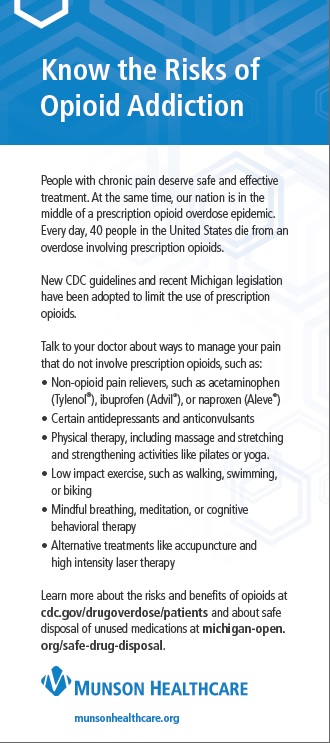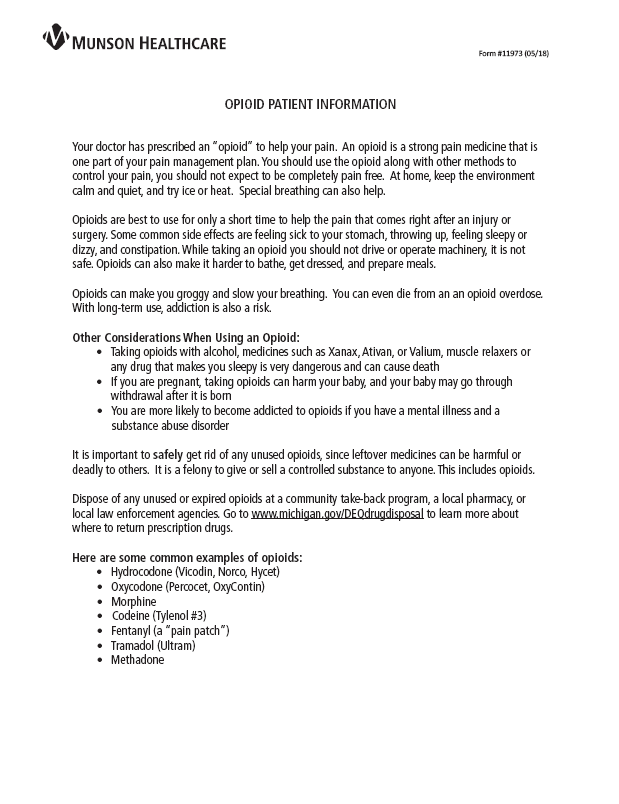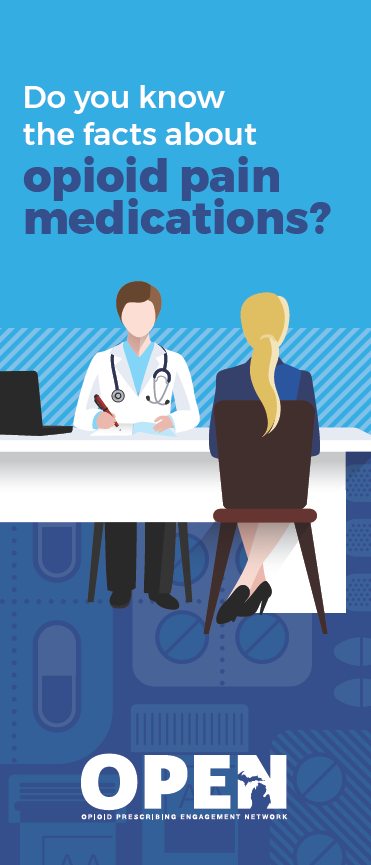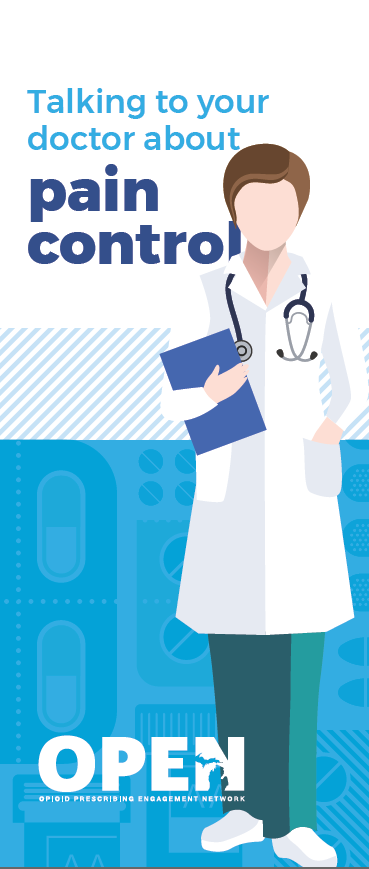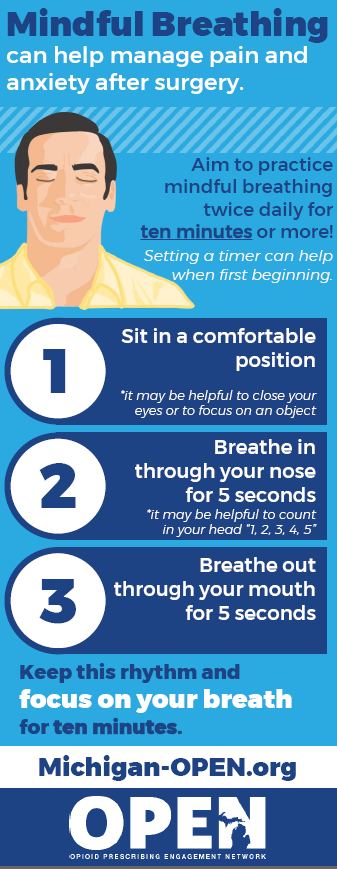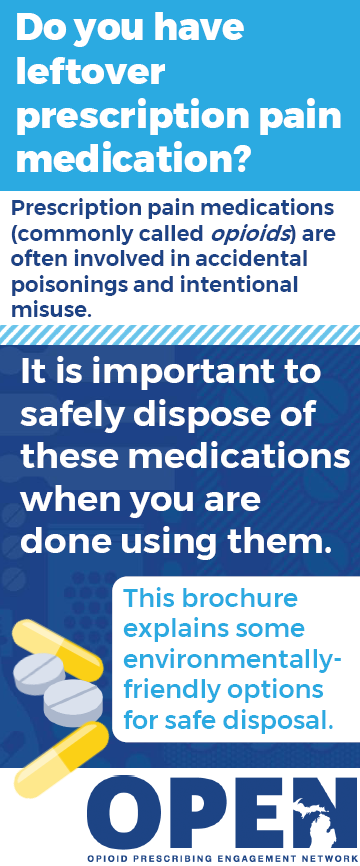Body

Resources for Patients
Munson Healthcare
Munson Healthcare has developed several tools that can be displayed in waiting areas or shared with patients to educate them about the new law and how it may impact their care.
MI-OPEN
The Michigan Opioid Prescribing Engagement Network (MI-OPEN) has multiple tools that can be displayed in waiting areas or shared patients to educate them about the new opiod law and how it may impact their care.
Messages for Patients
- Opioids can reduce pain during short-term use, but there is no evidence that opioids control chronic pain long-term.
- Exercise, non-opioid medications, and other therapies are typically more effective with less harm.
- Regular follow up visits are important during opioid therapy.
- Precautions include checking drug monitoring databases, urine drug testing, and prescribing naloxone if needed to prevent fatal overdose.
- Protect family and friends by storing medications in their original containers and securing in a locked place out of reach of children and pets.
- Safely dispose of unused medications at a local drug take back site or, as a last resort, mix with dirt, kitty litter, or coffee grounds in a sealed container and dispose of in the trash.
Medication Disposal
Safe disposal of unused or unneeded medications is critical for preventing abuse.
- Local Take Back Sites
- Medication Disposal Guide (MHA Keystone Center)
- Michigan Opioid Disposal Map (MI-OPEN)
- National Prescription Drug Take Back Day
- Safe Drug Disposal (MI-OPEN)
<
